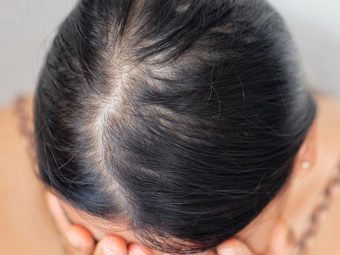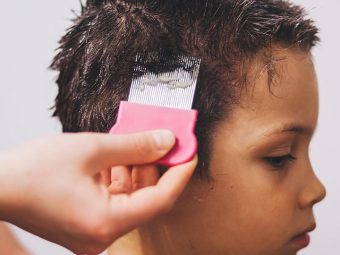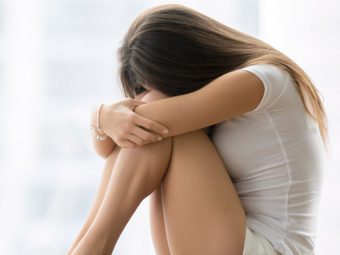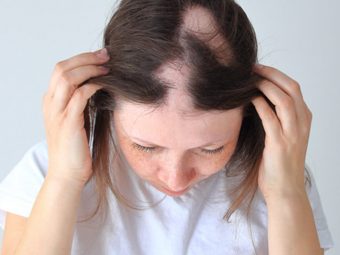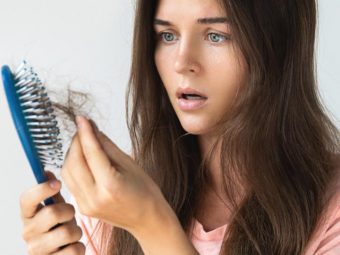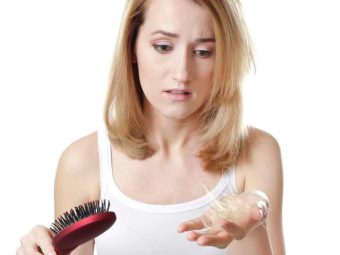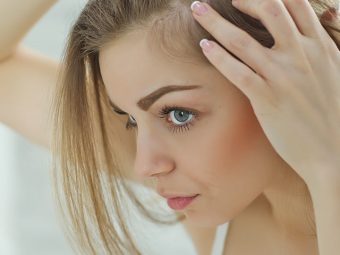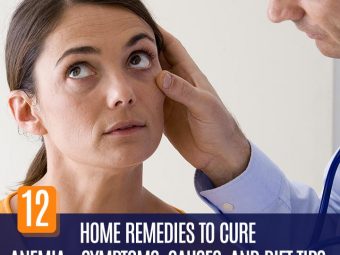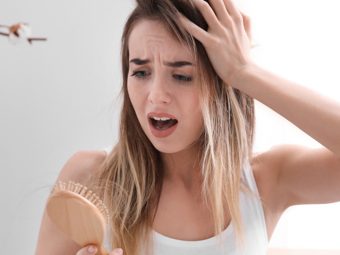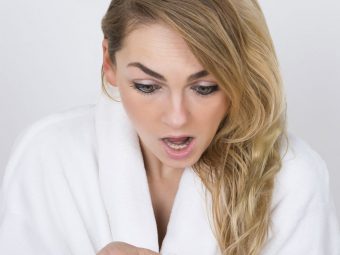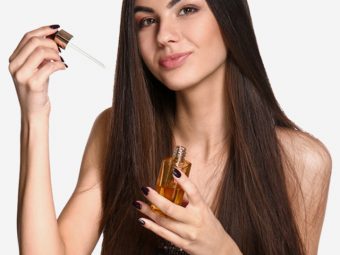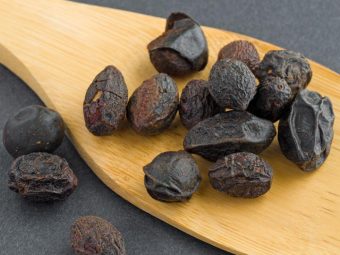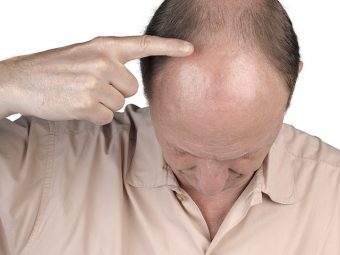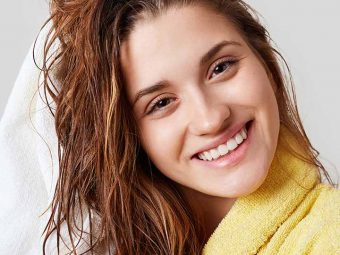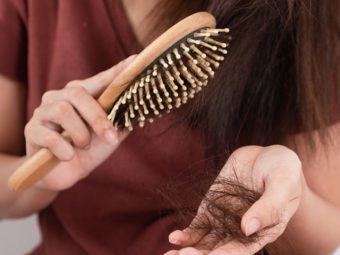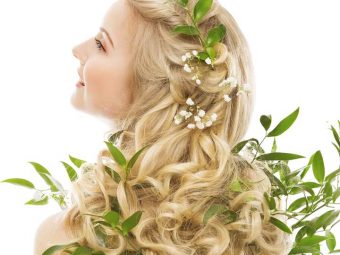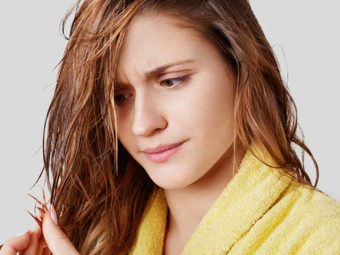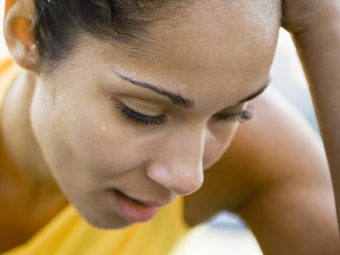Iron Deficiency Hair Loss – Causes, Symptoms, & How To Treat It
Failing to meet the daily requirements of this mineral may adversely affect your hair health.
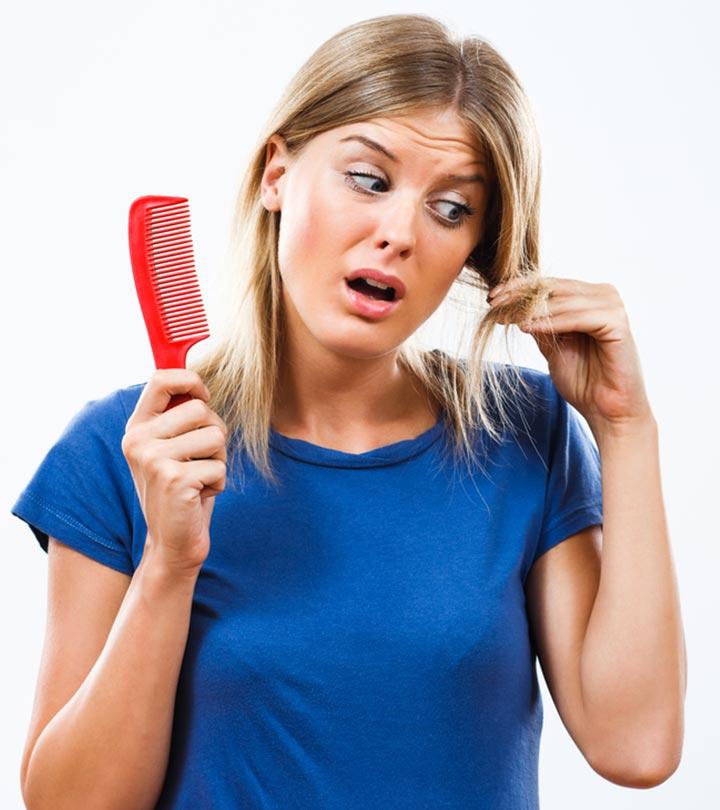
Image: Shutterstock
Iron deficiency or anemia has been linked with hair loss. But is it true? Does Iron deficiency cause hair loss? Let’s try to find answers here. Anemia is a condition caused due to decreased hemoglobin levels in red blood cells (RBCs). Continue reading to know more about anemia and its link with hair loss.
In This Article
What Is Iron Deficiency?
Iron deficiency anemia (one of the types of anemia) is caused due to decreased hemoglobin levels in your red blood cells (RBCs). This is the most common type of anemia and occurs when your body does not get enough iron to make hemoglobin (1).
Hemoglobin is the protein that carries oxygen to our entire body. Low hemoglobin levels mean reduced oxygen levels in the body.
Iron deficiency is more common among women. A poor diet, heavy menstruation, and pregnancy are a few major causes of iron deficiency in women.
The symptoms of iron deficiency are discussed in the next section.
Symptoms Of Iron Deficiency
The symptoms of iron deficiency could be mild, which is one reason many women fail to notice them. These include (2):
- Weakness
- Pale skin
- Dizziness
- Fatigue
- Cravings for unusual items like ice or dirt
- Swelling or soreness of the tongue
- Tingling feeling in the legs
- Headache
- Irregular heartbeat
Could hair loss be one of the symptoms of iron deficiency? Let us understand.
Can Iron Deficiency Cause Hair Loss?
Research linking iron deficiency and hair loss is limited. However, some studies do state that hair loss treatment could be enhanced when iron deficiency is treated (3).
Hair loss, whether caused by iron deficiency or otherwise, can be distressing. The following section discusses certain potential treatments for hair loss associated with iron deficiency. We suggest you talk to your doctor before taking any medications or supplements.
1. Iron Supplements
Researchers have seen that iron might be a great component for hair growth. Iron deficiency or not, if you are experiencing hair loss, iron supplements might help in combating hair loss. However, consult a doctor before taking iron supplements and discuss briefly all the benefits and side effects of iron supplements (4).
2. Dietary Changes
A diet rich in iron may help combat hair loss associated with iron deficiency. Foods like red meat, fish, chicken, and green vegetables are rich in iron.
 Quick Tip
Quick Tip3. Minoxidil
Minoxidil is a popular over-the-counter hair growth medication used by those experiencing male and female pattern hair loss. This medication helps encourage hair growth. However, it may take a long time to show promising results (5).
 Trivia
TriviaThe link between iron deficiency and hair loss has yet to be confirmed. This is because of various reasons, including heredity, which can cause hair loss. While some believe that a mineral deficiency can cause hair loss, the evidence is still inconclusive. Hair loss caused by iron deficiency should only be temporary. It’s always a good idea to see your doctor to talk about treatment choices and get on the road to better health as soon as possible. Your doctor can assist you in altering your diet to ensure that you obtain the proper amount of iron for your needs. On the other hand, iron deficiency can have major long-term health consequences. To restore your body’s iron levels, ensure you eat the right foods and take the right supplements.
Frequently Asked Questions
Does hair grow back after correcting iron deficiency?
Possibly. Once your serum ferritin (iron) levels are back to the normal baseline values, chances are your hair may regrow. However, this can take a long time and it is advised to seek medical help.
What does iron deficiency hair loss look like?
Iron deficiency could worsen or lead to female pattern hair loss. Thus, iron deficiency hair loss could look like hair thinning on the top and crown of the head (7).
Will taking iron help my hair grow?
Possibly. If your hair loss is related to low ferritin levels, taking iron supplements may boost hair growth. Consult your doctor before taking any supplements.
Key Takeaways
- Iron deficiency is more prevalent in women. This could be due to menstruation, pregnancy, and other factors.
- Although research is limited, a few studies suggest that taking iron supplements may help treat hair loss.
- Consuming a diet rich in iron may also help if you are experiencing hair loss. However, do not take iron supplements without consulting a doctor.
The video below shares a YouTuber’s journey with hair loss and iron deficiency. Now you can conquer hair loss hurdles as well and make your way to healthier, fuller hair. Click play now to check out how!
Sources
- Iron Deficiency Anemia
https://www.aafp.org/afp/2007/0301/p671.html - Iron deficiency anemia
https://medlineplus.gov/ency/article/000584.htm - The diagnosis and treatment of iron deficiency and its potential relationship to hair loss
https://www.jaad.org/article/S0190-9622(05)04745-6/fulltext - Minoxidil: mechanisms of action on hair growth
https://onlinelibrary.wiley.com/doi/abs/10.1111/j.1365-2133.2004.05785.x - Diet and hair loss: effects of nutrient deficiency and supplement use
https://www.ncbi.nlm.nih.gov/pmc/articles/PMC5315033/ - No Association between Serum Ferritin Levels >10 μg/l and Hair Loss Activity in Women
https://www.karger.com/Article/FullText/118505 - Iron Plays a Certain Role in Patterned Hair Loss
https://www.ncbi.nlm.nih.gov/pmc/articles/PMC3678013/





